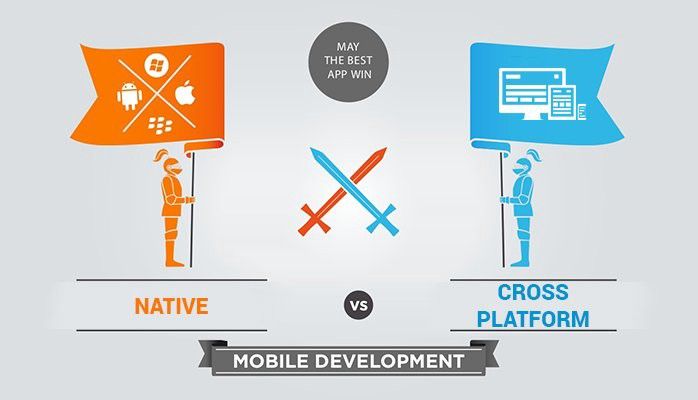There has been an old debate between native vs. cross-platform. It is a debate that has kept everyone interested, but the opinions are divided. Some of them claim that both cross-platform app development and react native app development are in constant evolution. Moreover, with time, technology keeps on updating; hence, it becomes necessary to revisit these topics from time-to-time to find out which of these two mobile app development platforms is in the lead.
It is important to note that both cross-platform and native development have their pros and cons. All these factors can have major implications on the people interlinked with the app like the app owner, app users, and app developers. App developers usually have preferences that restrict the scope of discussion to app owners and users.
Let’s now directly focus on the differences between the two mobile app development technologies.
Table of Contents
Performance
Native apps are the best when it comes to making the best out of the platform’s capabilities to its maximum potential. This makes native apps extremely high performing apps. They are swift, responsive, and unlikely to crash in normal conditions. Developers can optimize native apps and get the most of its features and capabilities only if they have adequate information on the platform they are working.
On the other hand, cross-platform apps are always dealing with performance issues. These apps are built as one app that can fit all the platforms; hence, it is not surprising to see them not functioning correctly on some devices. As far as performance is concerned, native apps win the deal smoothly.
Read also: What are the latest technologies for web development?
Features
With the help of native apps, it is possible to get the most out of the device’s native feature. This is especially true when we talk about iOS, which runs explicitly on Apple’s proprietary devices. It even provides offline features, which is not possible with cross-platform apps.
It is impossible for cross-platform apps to utilize the native features of the device. The reason being, they have restricted access to API. The reason being, these apps are developed for different apps having different features. Developers normally have the tendency of avoiding making any assumptions when it comes to its accessible features. The clear winner, when compared from a features point of view, is the Native app.
Feasibility
It takes twice as much time for native app development than cross-platform apps. It even costs higher because it needs to be developed for more than one app. Maintainance of the app also is a time-consuming affair and also costly. Developers need to find out any bugs and problems present in each and every platform. This way, they need to create different updates regularly.
Cross-platform development is comparatively cheaper when it comes to development and maintenance. The maintenance will also be less because you only to look after one app. However, there are times when a higher number of issues and bugs can neutralize this benefit. There is no clear winner here, and there is a tie between cross-platform development and native development when it comes to feasibility.
Read also: Top Web Development Trends to Watch out for in 2021
User Experience
User experience is essential in a mobile app. Native apps provide better performance, higher speed, and better device utilization, which makes it provide an excellent user experience. Designers and developers also have leverage in terms of creativity, which helps in developing smooth functioning and alluring apps. The great benefit of these apps is that they are not only responsive but also intuitive.
In the case of cross-platform development, the developers can come up with intuitive features, but it comes at the cost of speed. It is tough for the developers and the designers to fulfill the requirements of the UX requirement of multiple platforms at the same time. Overall, cross-platform apps fail to match in terms of native apps when it comes to providing desirable user experience.
Concluding Thoughts
In this write-up, we have provided the difference between cross-platform and native development. To ensure success for your business, it is essential to select either of these platforms and hire mobile app developers from a reputed mobile app development company today!
Author Bio:
Harshal Shah is the CEO of MyAppGurus– Mobile app development company. He is an avid learner of breakthrough mobile technologies. In fact, it was due to his passion for mobile technology that led to the inception of this company. He believes in building innovative mobile applications using different types of platforms like Android, iOS, and Windows.
Read also: 5 Brilliant Ways To Use Open-Source Web Development




